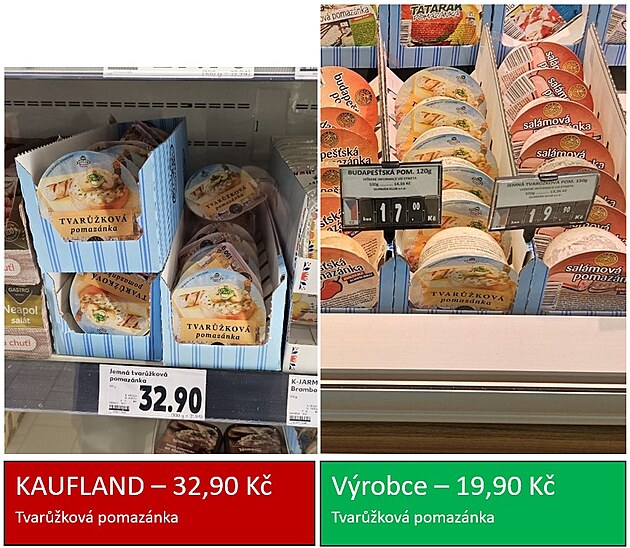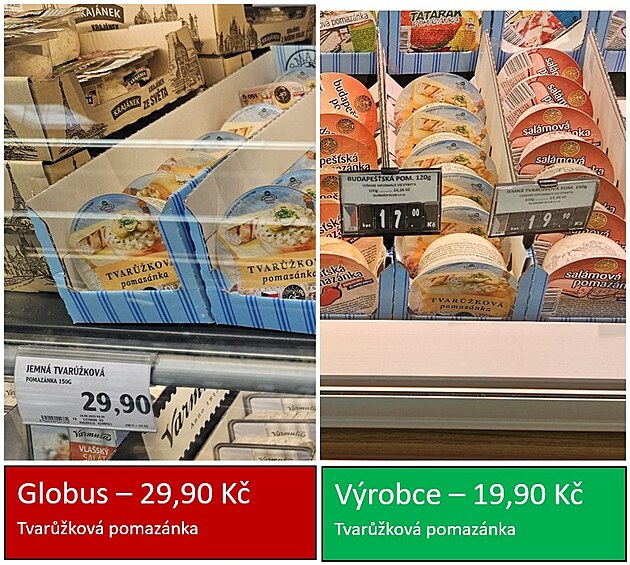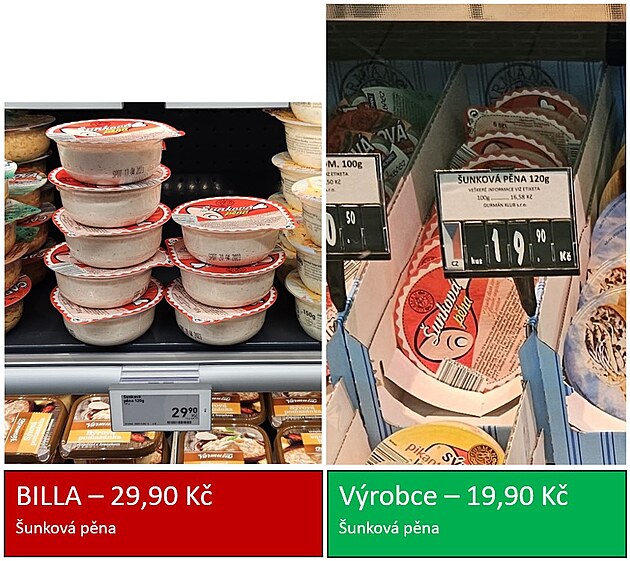Recently, I came across a Czech company of sofas that supplies its products to all major shopping malls. You can sell your products on e-store and your own corporate store. I compared the prices and I couldn’t stop wondering how big the difference was, with the exception of iDNES.cz Stanisław.
According to his findings, soft Czech products produced by Gourmet Klub sdlc in Kamenice Ehrovice near Kladno are often sold fifty to one hundred percent cheaper than company stores.
Pomažnka cheese, eggs, abajkov, à la salmon and lentils A crushed vint is about 15 kroner more expensive, personal pick-up in the city is not provided by the manufacturer in his e-shop, the sender describes photos with prices for the editorial office.



The teachers turned to the named teacher with a question, who referred to the union president, Tom Brusa. “As this is a dark matter affecting the entire retail industry, please contact us for a resolution,” Coffland spokeswoman Renata Meyerl said.
The manufacturer prices its e-shop products excluding logistics and operating costs. When you make a trial purchase, you have the sole option of taking a spread on Kamenni Ehrovis. Tom Bruzza explains that this is where Gourmet Club has its product line.
According to him, the goods go directly from the line to the counters of the store, and the costs of transportation, storage and wages are not reflected in the prices of the store.
If the customer visits the company’s store for each product, the purchase price is equal to the store price. In the same way, if the cost of a given spread includes travel time to Prague and back, the spread will cost money, not when you buy the rest of your purchases at the corner store. Please let us compare, said the union leader.
These are box stores, waste and logistics
According to the Product Editor Gourmet Club Vclava Balna is based on pricing and minimum operating costs from sales of surplus productivity in retail businesses. The company always produces small quantities due to inventory when orders are filled, and then sells the remaining individual surpluses to corporate stores so that they do not have to liquidate them.
The manufacturer always gives a certain lifetime warranty for further sale to the customer. That is why it cannot be produced or, due to the nature of the products, the first product can be stored for a long time. Large domestic retailers receive the goods ordered from us mainly on the second day of production to the central warehouse and take care of sorting, handling, distribution to all their branches, location, marketing and selling of the goods as per their own responsibility. , and last but not least, depreciation and liquidation of unsold goods. , Paul explains.
It cautions against comparing prices without additional information. Following a temperature estimate without knowledge of logistics, marketing, storage or related costs, sales and depreciation of our products would not be appropriate to begin with, Baln added, with the fact that the company does not have any selling price even in the estimate.
As a producer, we cannot affect our customers in any way by changing the end of the tax or the price of the counter, which is against the current law or against the first EU of the cartel, concluded Pauln.